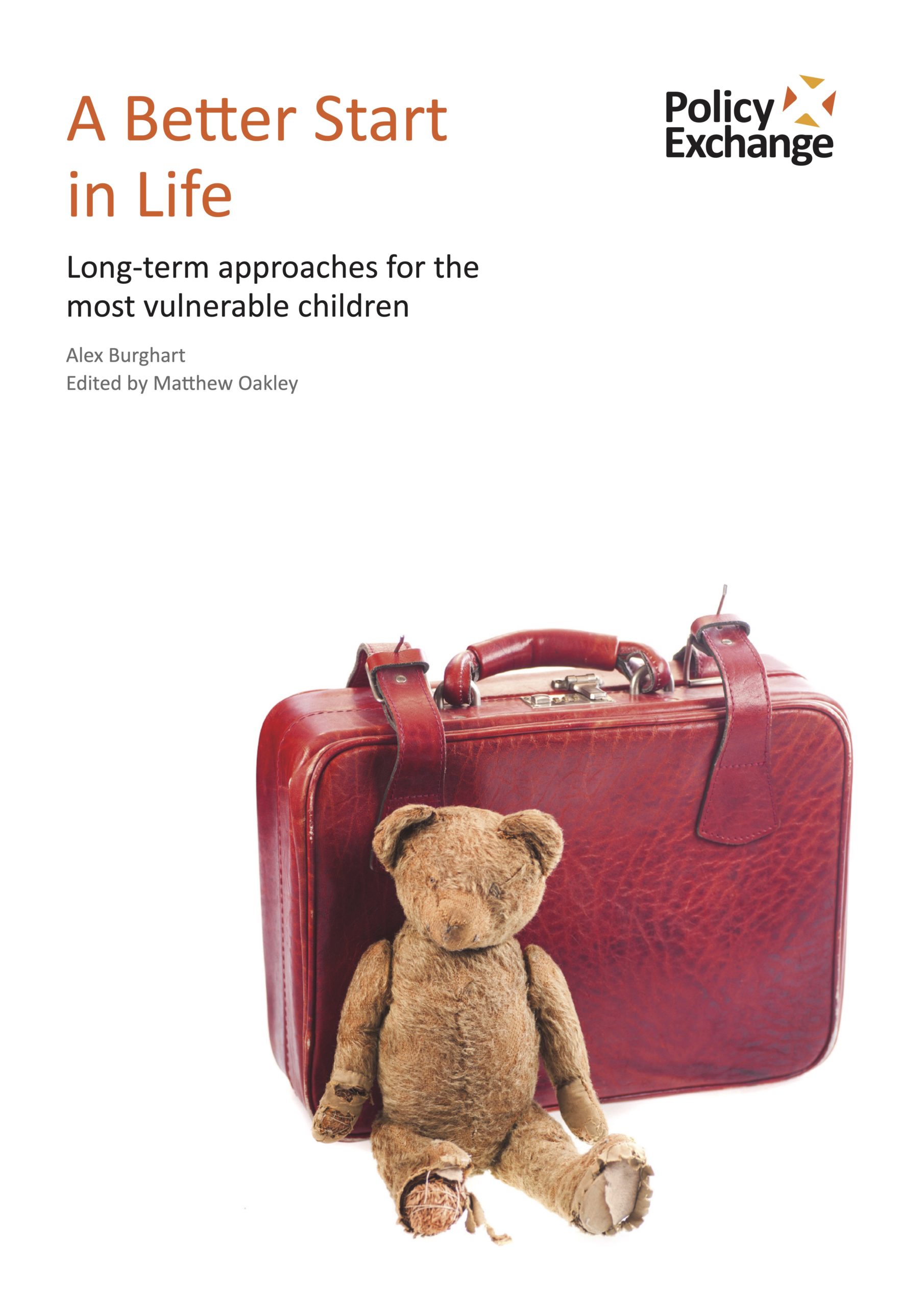
A Better Start in Life: Long-term approaches for the most vulnerable children
A Better Start in Life shows that every year thousands of the most vulnerable children in the country are moved from one care placement to another. In some instances, children are being moved around the care system more than ten times within a year while data from 2011 shows that at least 13 individuals leaving the care system had experienced more than 50 placements.
One of the main recommendations of the report is that the government should increase the number of looked after and disadvantaged children given the opportunity to attend boarding schools by at least 1,000 by 2015/16. A key advantage of using residential schooling is that it can provide children with stability at home and at school. By providing respite to foster carers and birth parents, boarding school could help keep families together, reducing the number of people entering the care system and reducing the likelihood of placement breakdown for those moving into care. It could also attract more foster carers to the system in an attempt to tackle the significant shortfall in carers throughout the country.
The report found that:
Sending a child to a boarding school is actually cheaper than fostering. Whereas the cost of fostering a child is approximately £20,800 a year, the annual cost of sending a young person to a state boarding school would be about £14,800.
Only 1% of looked after children attend boarding schools. Despite Lord Adonis’ ‘boarding pathfinder’ scheme, set up under the previous Labour government, only 17 young people ended up being sent to a boarding schools.14 local authorities do not place any children in residential schools.
Previous research has also found that disadvantaged children achieve better grades in boarding schools. 85% of 11-17 year olds who had spent three of more years as boarders achieved better exam results than the average child for their age.
The report makes a number of recommendations including:
- The Department for Education (DfE) should give trained and experienced foster carers the right to request school placements for children in their care, including sending the child to a boarding school
- DfE should seek to increase the number of places for vulnerable children that are available at state and independent boarding schools by at least 1,000 by 2015/16
- Local authorities should be required to collect data showing the number of placements looked after children have had during their whole time in care
- Local authorities should be required to collect and publish data to show the number of school moves and number of social workers looked after children have had since they came into care
Matthew Oakley, head of economics and social policy at Policy Exchange, “It is deeply worrying that the care system is failing to provide stability and good outcomes for a significant number of society’s most disadvantaged and vulnerable children.”
“While it is right the government has focussed on reforming the system of adoption, it is important that we do not to see adoption as a silver bullet. We must work harder to provide a care system that has a range of options to meet the diverse needs of children having to enter the care system. That will mean using the residential and foster care systems more effectively and using options like state and independent boarding to provide stability of both school and home life.
“It will also mean intervening early, for example, offering boarding schools, to children on the edge of care in order to keep families together and prevent vulnerable children from entering the care system in the first place.”
Testimonials
“Policy Exchange rightly highlight the fact that children are moved too often from one care placement to another as councils struggle to cope with rising numbers. Boarding school is one – but not the only solution to this problem. We need more evidence, but it may be a good option for some children.
“The Government must reduce barriers to fostering and provide better support to foster families. All children deserve a stable environment, whether they are in residential or foster care, or at boarding school.”
Lisa Nandy MP – Shadow Minister for Children and Young People
“Placing children in boarding schools as an alternative to care, as recommended by Policy Exchange … is something we are pleased to see on the agenda.
“As charities supporting more than 300 vulnerable young people at some 100 independent and state boarding schools, Buttle UK and Royal National Children’s Foundation have found the boarding system to be stable, supportive and transformative environment for children at risk of care.”
Colin Morrison – Chairman, Royal National Children’s Foundation

